A Step Back in History-Kyoto
Our last and most favorite stop of the trip was Kyoto. We arrived into Kyoto Station from Osaka by the JR lines. Below is the gorgeous station that we were greeted with. Never have I been in such an innovative and futuresk (please excuse the creation of new words) public space.
This is the road leading up to the Kiyomizu Temple. While on a student exchange to Japan 10 years ago, my host family brought me to this same temple. It was so exciting to be sharing the same place with hubs years later.
Outside the entrance of the temple
Visitors light incense and try to cover their head with the smoke
Overlooking the city of Kyoto
Beneath the main hall is the otowa waterfall. Three different channels of water fall into the pond below. Visitors can hold long sticks with metal cups at the end and get a drink from these falls and get a wish granted.
There is a popular saying in Japanese that is similar to the states "take the plunge" and it is "jump off the stage at Kiyomizu". In the Edo Period (no idea what year that is) the tradition held that if you were to survive the 13 meter jump off of the veranda, your wish would come true. 234 jumps were recorded during that time with a 85.4% survival rate. It does not list, however, what injuries were gained by those who survived. Shockingly, the practice is not prohibited.
Late at night we would walk the streets of Gion which is said to be one of the last areas of Japan where geishas are still at work in the teahouses. Unfortunately, we were unable to see any for ourselves but the streets were a gorgeous mix of old and new that we loved to wander around.
After wandering around the streets for awhile, we started to wonder if geishas were real at all or if we were on the hunt for an imagined animal. At least we weren't alone. I'm pretty sure all the other foreigners walking anxiously down the street that night with cameras ready in hand were looking for the same thing.
My favorite site of all was the Fushimi Inari Shrine. It is a shinto shrine put in place in order to worship the God Inari, the God of Rice. Foxes are said to be its messengers which is why several fox statues can be seen along the trail. The large orange gateways are called toriis and there are thousands of them along the two hour trail. All of them are donations from individuals and businesses. Prices for the smaller ones start at around 5,000 us dollars while the larger ones start at around 13,000 us dollars.
It was a gorgeous view of all the torii gates heading deeper into the forest.
The black lettering is the name of the donator and the date of the donation
We stopped briefly at the golden pavilion. It really has little history but it's a cool looking building in the middle of the water and there were about a hundred other people there taking pictures of it. I'd say it was worth it.
We stopped by a nearby temple for new years where they were setting up for a festival. We decided to come back when it got a little closer to the countdown. When we showed back up, the streets were packed with thousands of people with apparently, the same mindset as us. The police had barricaded the streets surrounding the temple so no one could get in until after midnight. When I think of sneaking into a place, often times a concert or some sort of show comes to mind. Apparently to people in Kyoto, the best place to try to sneak into is a temple. I guess 'sneak' is the wrong word. Jumping across barricades, running across lanes of traffic and dodging police is more along the right lines. The first few people were successful, the rest...were not. The police became pretty good at lunging at the hooligans and wrestling them to the ground, then proceeding to throw them into cop cars and haul them off to jail. It made for good entertainment while we were waiting.
A group of ladies at the temple all dressed up in their traditional kimonos.
This is the road leading up to the Kiyomizu Temple. While on a student exchange to Japan 10 years ago, my host family brought me to this same temple. It was so exciting to be sharing the same place with hubs years later.
Outside the entrance of the temple
Visitors light incense and try to cover their head with the smoke
Overlooking the city of Kyoto
Beneath the main hall is the otowa waterfall. Three different channels of water fall into the pond below. Visitors can hold long sticks with metal cups at the end and get a drink from these falls and get a wish granted.
There is a popular saying in Japanese that is similar to the states "take the plunge" and it is "jump off the stage at Kiyomizu". In the Edo Period (no idea what year that is) the tradition held that if you were to survive the 13 meter jump off of the veranda, your wish would come true. 234 jumps were recorded during that time with a 85.4% survival rate. It does not list, however, what injuries were gained by those who survived. Shockingly, the practice is not prohibited.
Late at night we would walk the streets of Gion which is said to be one of the last areas of Japan where geishas are still at work in the teahouses. Unfortunately, we were unable to see any for ourselves but the streets were a gorgeous mix of old and new that we loved to wander around.
After wandering around the streets for awhile, we started to wonder if geishas were real at all or if we were on the hunt for an imagined animal. At least we weren't alone. I'm pretty sure all the other foreigners walking anxiously down the street that night with cameras ready in hand were looking for the same thing.
My favorite site of all was the Fushimi Inari Shrine. It is a shinto shrine put in place in order to worship the God Inari, the God of Rice. Foxes are said to be its messengers which is why several fox statues can be seen along the trail. The large orange gateways are called toriis and there are thousands of them along the two hour trail. All of them are donations from individuals and businesses. Prices for the smaller ones start at around 5,000 us dollars while the larger ones start at around 13,000 us dollars.
It was a gorgeous view of all the torii gates heading deeper into the forest.
The black lettering is the name of the donator and the date of the donation
We stopped briefly at the golden pavilion. It really has little history but it's a cool looking building in the middle of the water and there were about a hundred other people there taking pictures of it. I'd say it was worth it.
We stopped by a nearby temple for new years where they were setting up for a festival. We decided to come back when it got a little closer to the countdown. When we showed back up, the streets were packed with thousands of people with apparently, the same mindset as us. The police had barricaded the streets surrounding the temple so no one could get in until after midnight. When I think of sneaking into a place, often times a concert or some sort of show comes to mind. Apparently to people in Kyoto, the best place to try to sneak into is a temple. I guess 'sneak' is the wrong word. Jumping across barricades, running across lanes of traffic and dodging police is more along the right lines. The first few people were successful, the rest...were not. The police became pretty good at lunging at the hooligans and wrestling them to the ground, then proceeding to throw them into cop cars and haul them off to jail. It made for good entertainment while we were waiting.
A group of ladies at the temple all dressed up in their traditional kimonos.
Kyoto was by far our favorite stop in Japan. Around every corner was another historical site and another attraction to see. We had no problem filling up the short amount of time we were there.
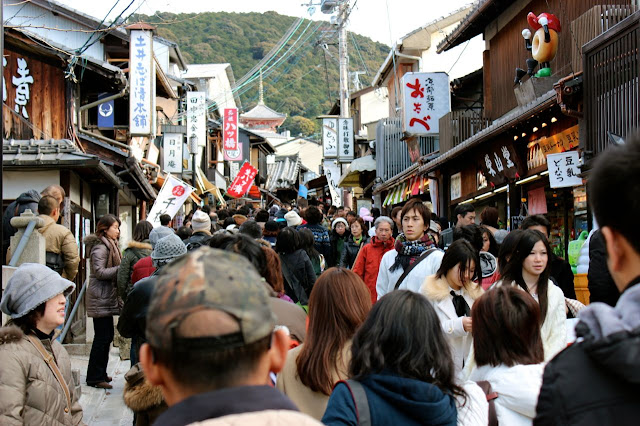
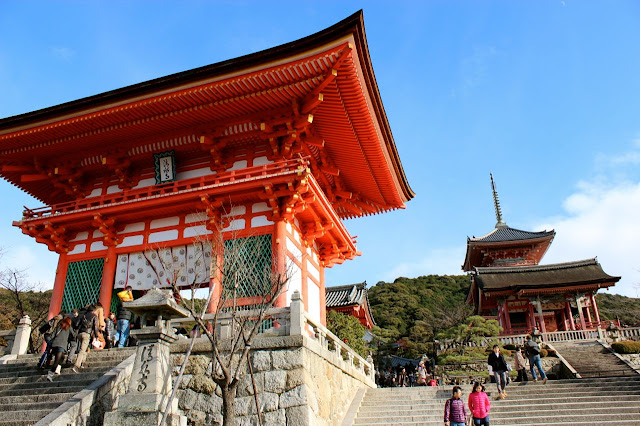
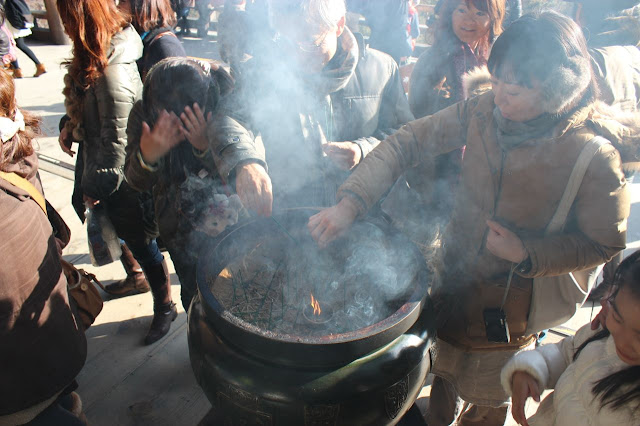
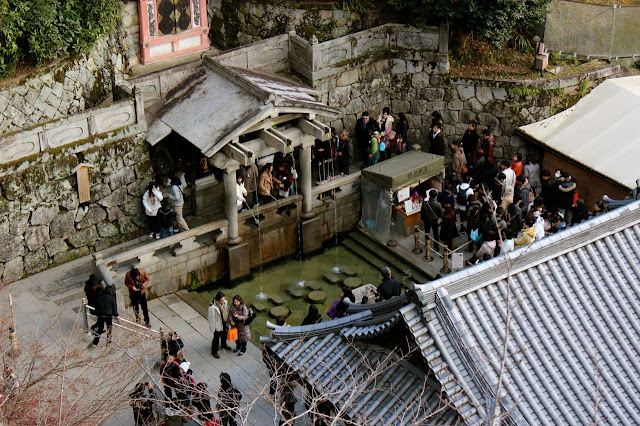

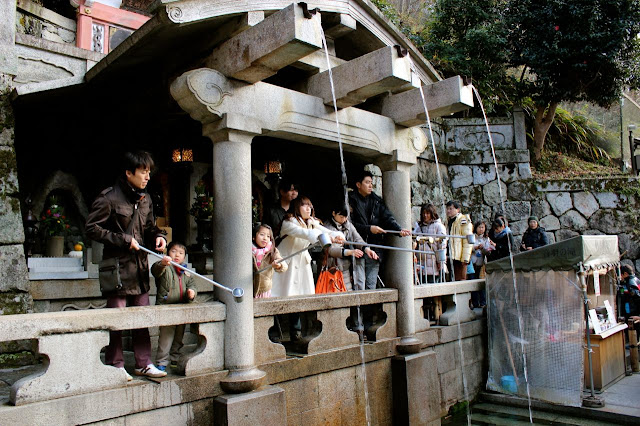
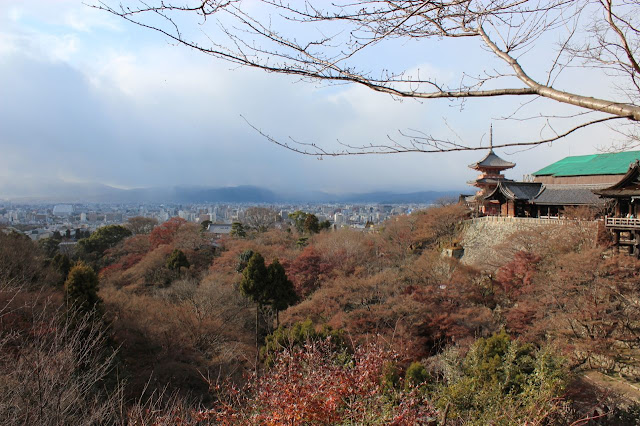
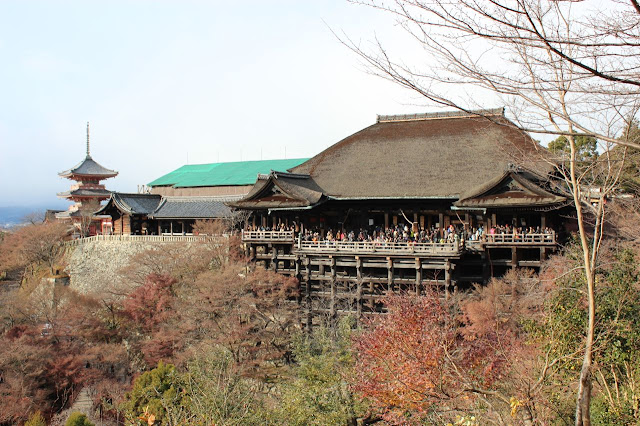



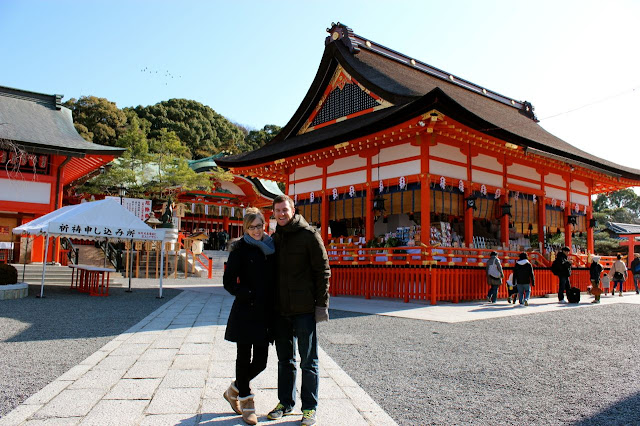



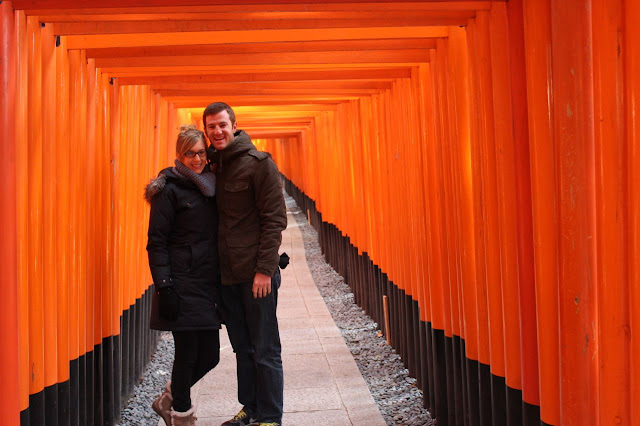
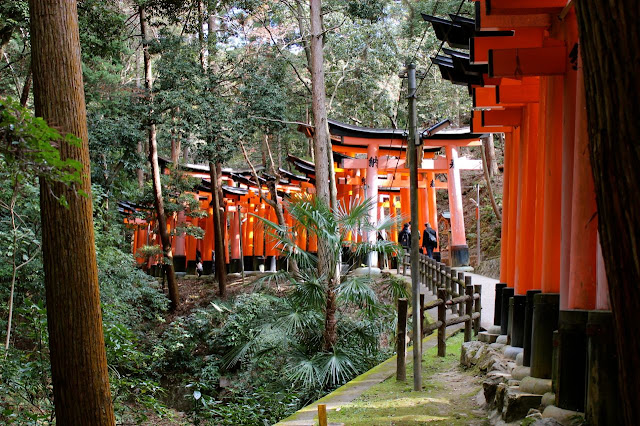

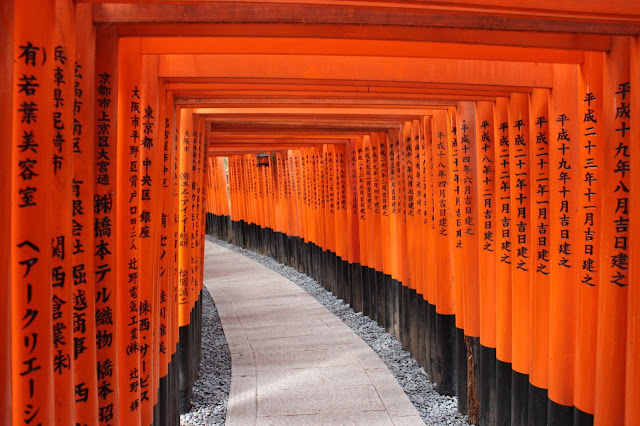
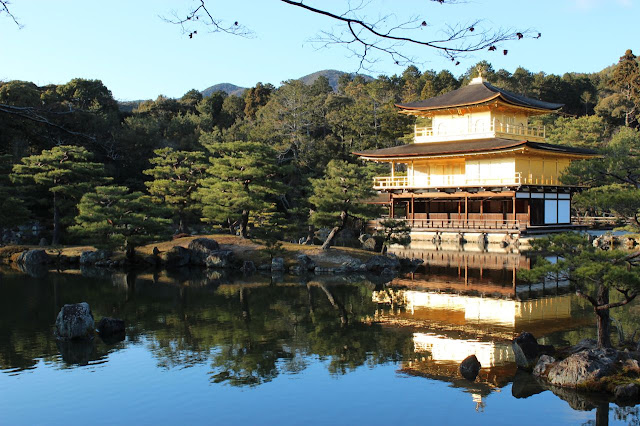


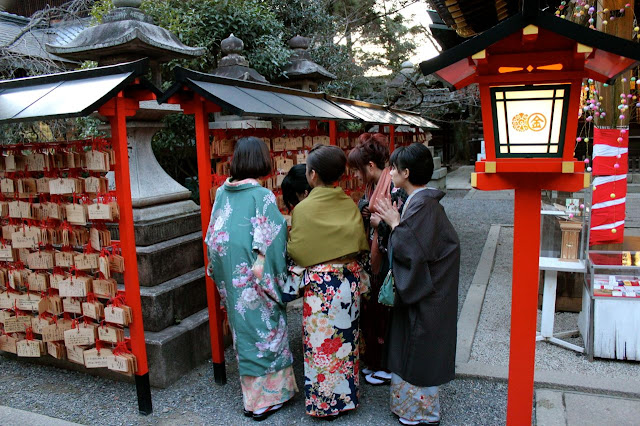



Comments
Post a Comment